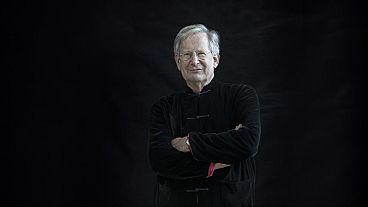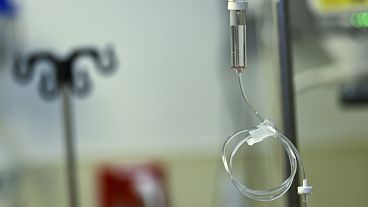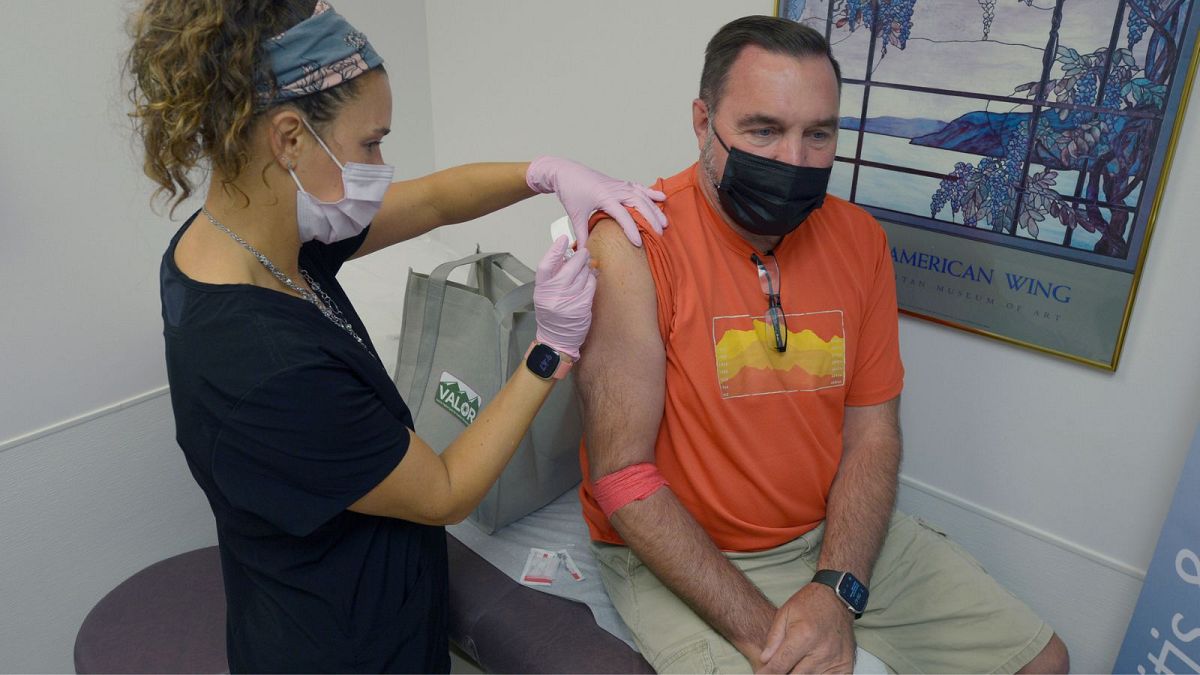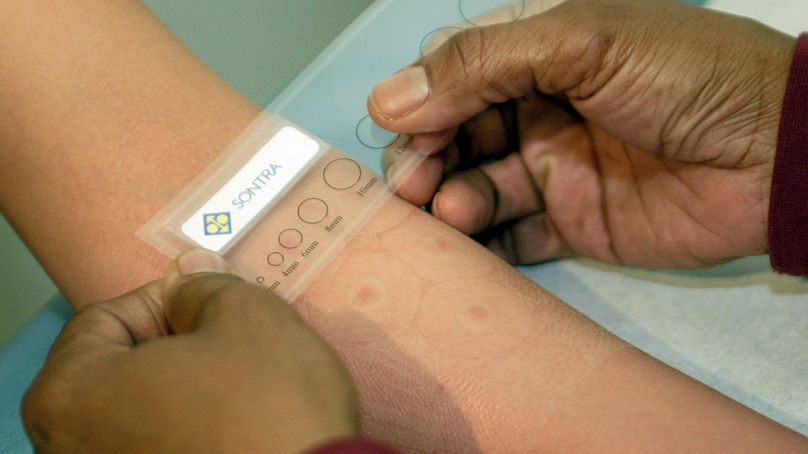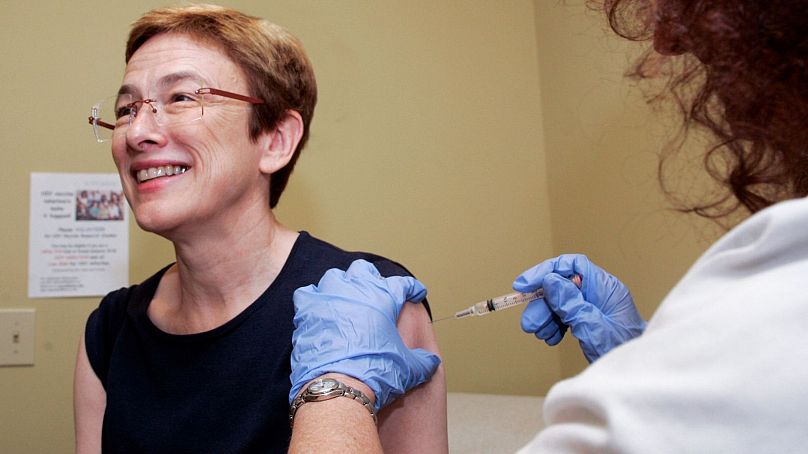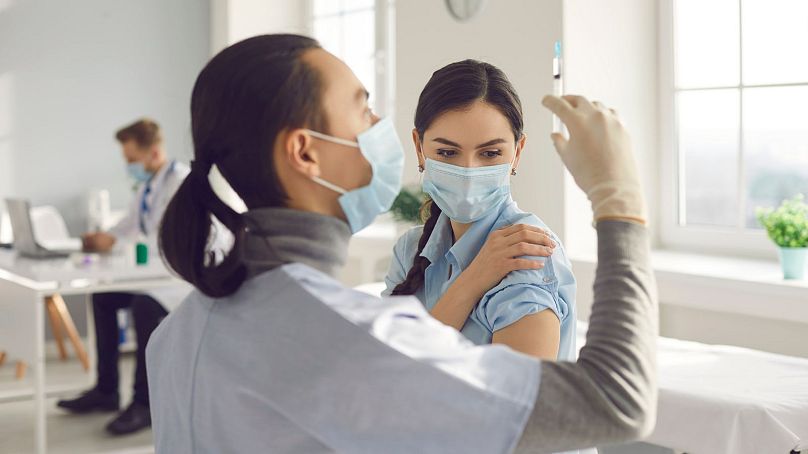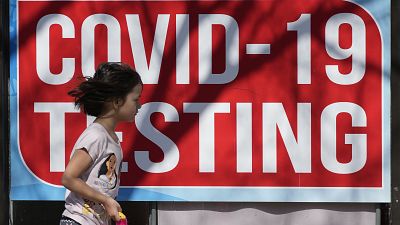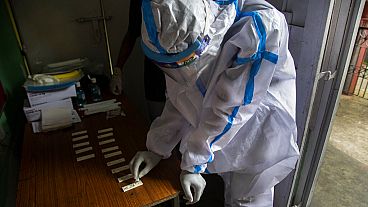Free meals, endless movies to watch, and a cool couple of grand in your bank account. The catch? You’ve got the flu.
In the last decade, Ben has taken part in 15 paid clinical trials.
The 37-year-old from Cambridge in the UK became a human guinea pig for the reason most people do: money.
“I’d had my first child, and the childcare bill was more than I was earning per month. So I did trials using my annual leave entitlement to earn some extra cash,” Ben told Euronews Health.
The very first trial he participated in was for an anti-inflammatory drug and run by Quotient Sciences, a UK-based drug development company.
“(Quotient Sciences) were a really great team who explained the trial and risks to me fully. I had to receive six injections over a period of six days. Each was in my abdomen and felt like a bee sting,” Ben said.
He spent a total of nine days in the unit and found it to be a “great experience,” passing the time by watching TV and eating: “I was fed really well the whole time I was there”.
Ben is one of a growing number of people choosing to take part in paid clinical research trials, with nearly 1.4 million participants across England in 2020/2021, according to the Association of British Pharmaceutical Industry (ABPI) of which roughly 900,000 took part in COVID-19 studies.
Participants say that besides money, there’s also the gratification of assisting with the development of potentially life-saving medical treatments. A sense of medical fascination can sometimes play a part too.
How do you participate in paid clinical trials?
Thousands of clinical trials are currently being conducted across Europe, with roughly 2,800 authorised each year In the EU, according to the European Medicines Agency (EMA), which also states that around 60 per cent of these are sponsored by the pharmaceutical industry and 40 per cent by non-commercial sponsors - mostly from academia.
The majority of these trials will not offer monetary compensation, but for those that do, the amount is dependent on the phase of the trial, which is also linked to its level of risk.
Phase 1 trials pay the most as they test medicines on human volunteers for the first time, while phase 4 trials pay less since they test treatments that have already passed all previous stages and been given marketing licences - meaning they’re available via prescription already, according to the UK’s National Health Service (NHS).
In the UK, one of the most popular is London’s FluCamp, which is run by the company hVIVO, and aims to better understand the impact of respiratory viruses on the immune system and improve treatments.
Participants are paid up to £4,400 (€5,237), with some being administered a small dose of a virus strain, others a placebo. They are then quarantined in a facility in London for 11 to 14 days, with a final check-up conducted a month after the trial ends.
“A volunteer would first fill out our online webform, we would then assess their eligibility and if approved, they are invited to their first screening appointment where we run a few tests,” said a FluCamp marketing representative.
“After this, we have an extensive health check, which involves ECGs, blood tests and health checks with a clinical support specialist. Once the results from the health check are reviewed, we then invite them onto a trial”.
Sarah, 39, took part in FluCamp after seeing an advertisement for it on Facebook, with the aim of putting the money towards buying a house.
“Overall the experience was good, the staff were friendly and helpful. They provided plenty of food and we could always request more,” Sarah said.
Laura, 31, also took part in FluCamp earlier this year, travelling the long distance between her home in Cornwall and London.
“I got £4,200 (€4,893) in total. I think, overall, it was just about worth it. The number might sound high, but it’s actually quite well-calibrated to effort. There were a lot of trips back and forth to London and it's not exactly a 'nice' time,” Laura said.
While she didn’t experience any symptoms from the virus, the constant tests made it challenging.
“There were times when they took lots of blood in one day, or when I was lying with my head dangling over the edge of the bed while they administered the virus to my nose, and thought, ‘have I chosen the right path in life?’,” Laura said.
“They do their best to make it feel less insane but I still found it a little dehumanising and existential,” she added.
The isolation of the two-week quarantine period can be difficult for some, but a welcome opportunity for others who want to work on creative projects or engage in their hobbies guilt-free.
“I had plenty to keep me occupied, such as my work and playing retro games,” Ben said.
“I used most of the time to read my book, 'Fortress of Solitude', meditate, play guitar and look out of the window. I also watched films on my laptop,” Laura said.
How dangerous are clinical trials?
While essential for testing and approving new medical treatments, clinical trials also come with some risk - particularly in phase 1 trials, where it’s the first time a human volunteer is testing a medicine.
The most famous - and extreme - example of this was the 2006 Northwick Park drug trial disaster, also known as The Elephant Man trial, in which six healthy young men became gravely ill from an experimental leukaemia drug known as TGN1412.
"I felt my head swelling up like an elephant's - I thought my eyeballs were going to pop out," Nav Modi, one of the six participants, told the BBC in an interview following the event.
In response, the Duff Report was published, calling for several changes to be made in the ways that drugs were tested on humans, with its recommendations including more scrutiny from independent experts on high-risk medicines and slower infusions instead of one-off injections.
Thankfully, cases like Northwick Park are extremely rare, with strict regulation protocols in place.
In the UK, this is done by a government agency called the Medicines and Healthcare products Regulatory Agency (MHRA), which reviews and authorises clinical trials of new medicines.
While this ensures that medical trials are largely safe, there’s no guarantee you won’t end up feeling very unwell.
The comedian John Tothill, who took part in a medical trial for a malaria treatment to fund his Edinburgh Fringe Show, has spoken about how he suffered from an extremely high fever and hallucinations, telling the BBC: “It was definitely the sickest I'd ever felt”.
Still, at fifteen trials and counting, Ben, from Cambridge, has not been put off: “I can't wait to get back and do another one,” he said.
Trial participants agreed to speak to Euronews Health about their experiences but did not want their surnames to appear in print for privacy.



